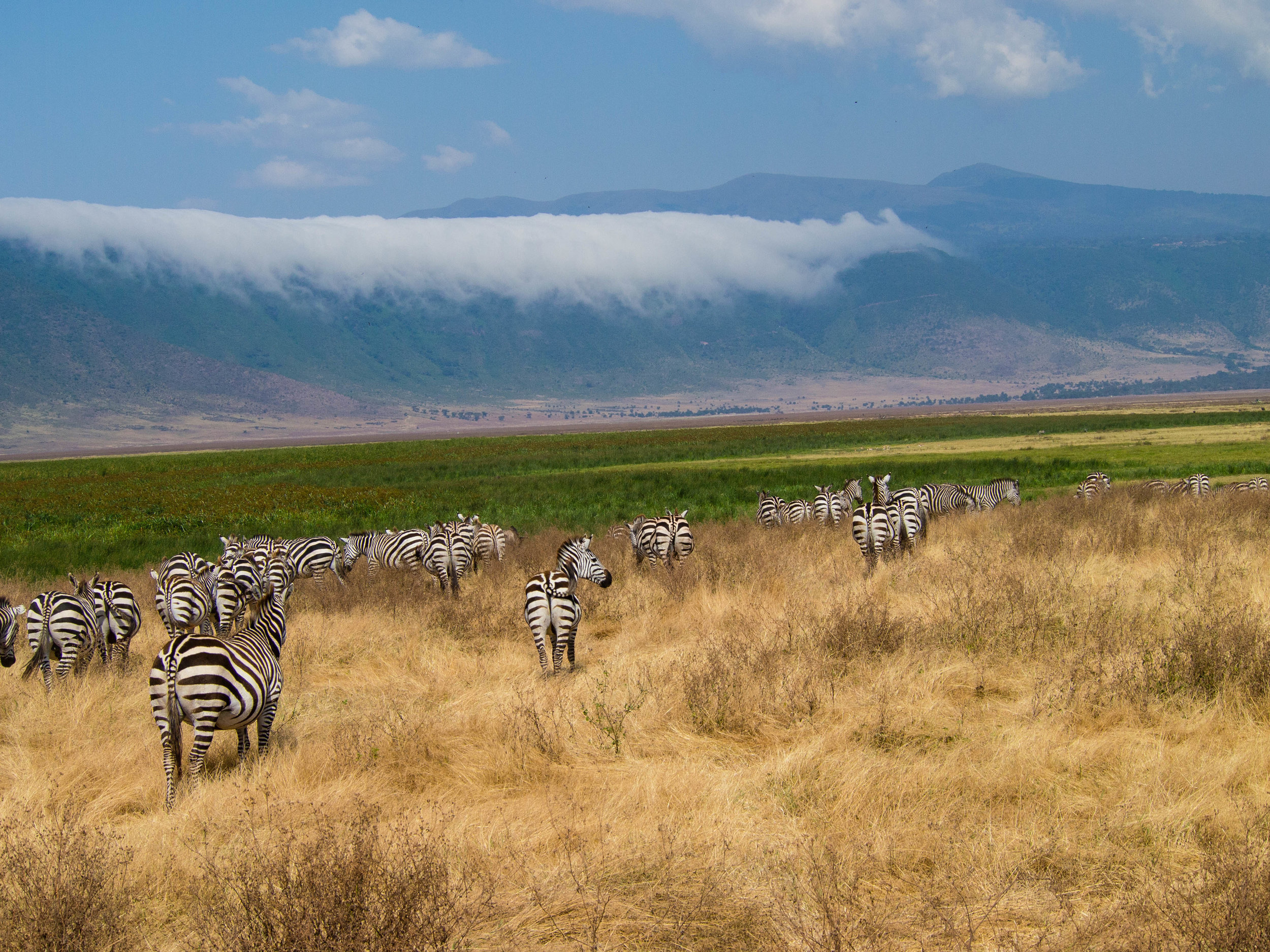Back to the crater

Ngorongoro is said to have formed about 2.5 million years ago when a volcano collapsed inward after a massive eruption. The result is 300 square kilometres of fertile, lush land, home to thousands of species of animal, bird and insect life.
The wider conservation area includes vast expanses of highland plains, savanna, woodlands and forests. Early hominid footprints dating back 3.6 million years have also been found here. Nowadays, or for the last few hundreds years, the area has been inhabited by the Masai people.
To use a Lion King analogy, the crater really represents the circle of life. This beautiful microcosm is the giver (and taker) of life - whether you look at it through it's initial creation, being a cradle of mankind and human evolution or it's vast concentration of wildlife who all take their place in the food chain.
Ngorogoro is one of those places you need to see to truly appreciate. The landscape is dramatic and has an element of hyperrealism. Clouds sweep over the crater. The different hues of greens from the foilage and blues of the lakes and sky are so vibrant it almost looks like a CGI shot from the next Pixar movie. And on top of this, you have the animals that range as far as the eye can see.
The zebras and wildebeest stick together in hoardes, and stand their ground when a cheetah comes into their territory. Warthogs playfully dash across the plains, tails in the air and grunting gleefully. Hyenas laze in the sun waiting for their next meal. Lions confidently stroll up to the 4x4 to take rest in their shade, not even moving once the engine comes on. More wildebeest suddenly break out into a sprint and playfully charge after each other, butting heads. The very prim and proper kori bustard birds proudly strut across the plains puffing their chest and ruffling their features. A lone bull elephant, takes a stroll through a picnic site and in the lake nearby, the eyes and nostrils of hippos appear and disappear under the water. And this is all happening in the one space. Right in front of you. Nice one Mother Nature.








